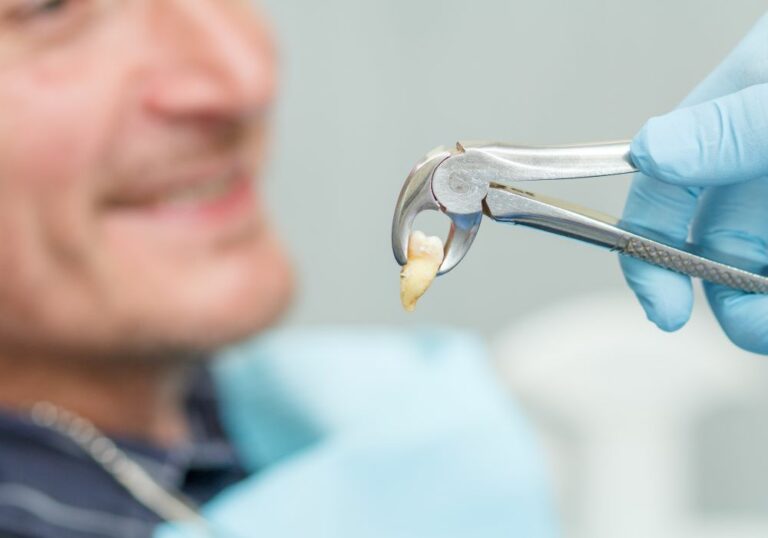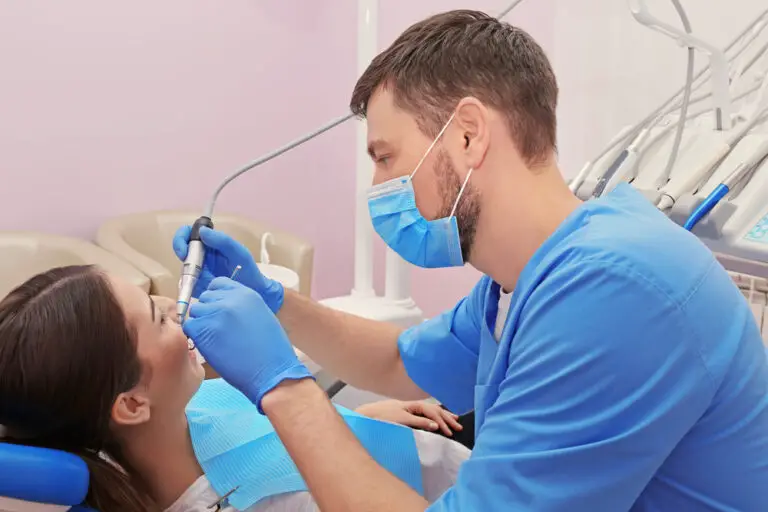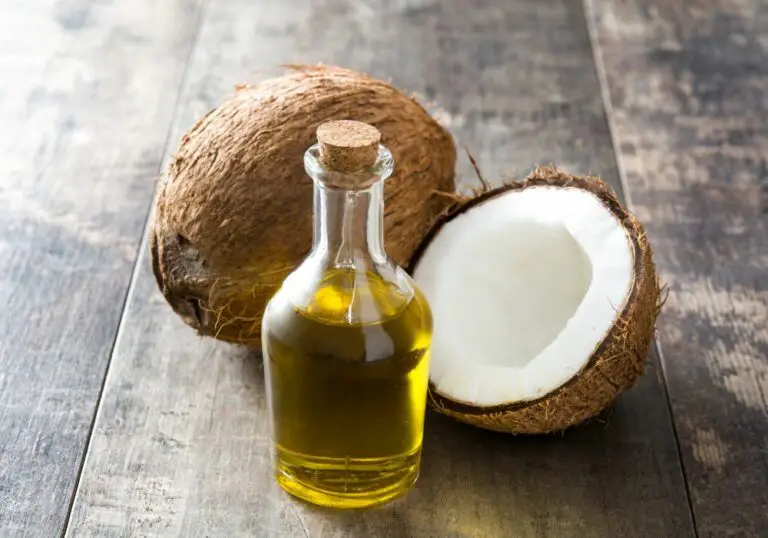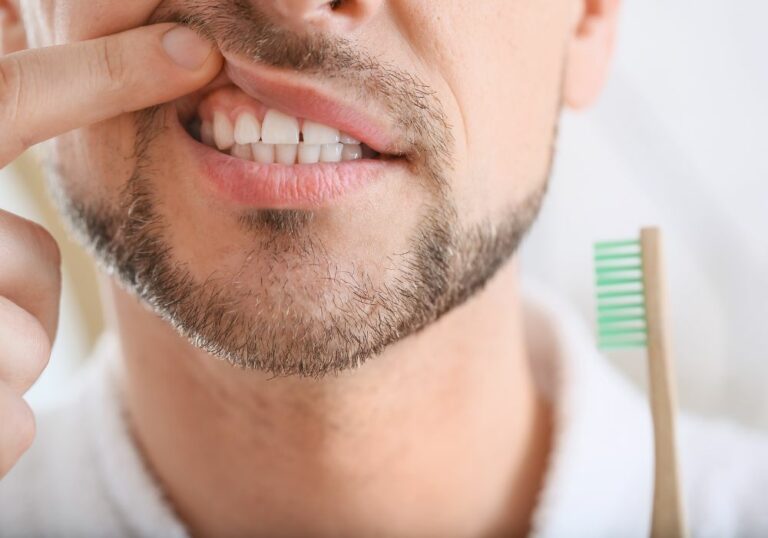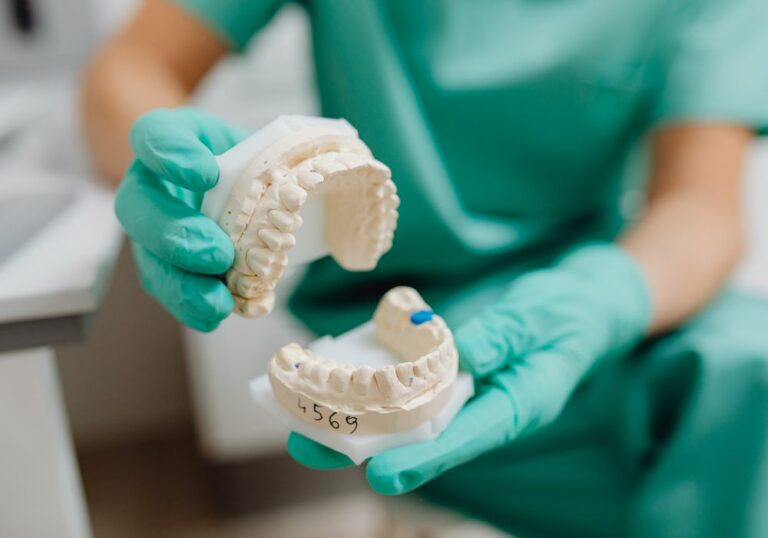What’s Happening Inside Your Jaw to Cause That Clicking
You are casually chewing your food when suddenly you hear and feel a strange clicking or popping sensation in your jaw. Understandably, this bizarre noise can be alarming if you’ve never experienced it before. While it may sound serious, minor joint noises are surprisingly prevalent and seldom a major concern.
To understand what’s happening when your jaw clicks, it helps to first look at the anatomy and function of the temporomandibular joint (TMJ). This remarkably complex joint connects your jawbone to your skull. It contains numerous moving parts that all have to work in sync for smooth, painless jaw function day after day.
The Anatomy Behind Jaw Noises
Your two TMJs are located just in front of your ears and allow you to move your lower jaw up and down and side to side. This joint contains both bones and soft tissues:
- Mandible – This is the lower jawbone that attaches to the rest of the skull by the TMJs on both sides.
- Mandibular fossa – This is the socket in the temporal bone of the skull that the jawbone connects into.
- Articular disc – This is a flexible cartilage structure between the jawbone and skull that prevents them from rubbing together.
- Synovial membrane – The soft tissue lining of the joint space produces fluid that lubricates the joint.
- Joint capsule and ligaments – Tough, fibrous tissue encloses the joint and supports the surrounding muscles.
When all these components interact smoothly, you can open and close your mouth without noise or pain. However, problems can develop in any part of this complex system. Even minor issues like muscle stiffness or inflammation of the joint lining make enough difference to cause clicking or popping.
What’s Going on Inside That Clicking Jaw?
Doctors have pinpointed a few common culprits of pesky TMJ noises:
- The articular disc moves slightly out of position, causing a clicking or snapping sound as it shifts during jaw motion.
- The synovial fluid has bubbles or pockets of gas that burst, creating a popping noise.
- The joint surfaces have roughened from osteoarthritis, leading to crepitus (grinding).
- Muscles around the joint spasm or tighten, limiting smooth motions.
In most cases of simple clicking or popping with no other symptoms, the cause is benign. The body can adapt well to minor changes in the joint mechanics. But some people do go on to develop more troubling TMJ disorders. Understanding the difference is key.
Should That Clicking Jaw Concern You?
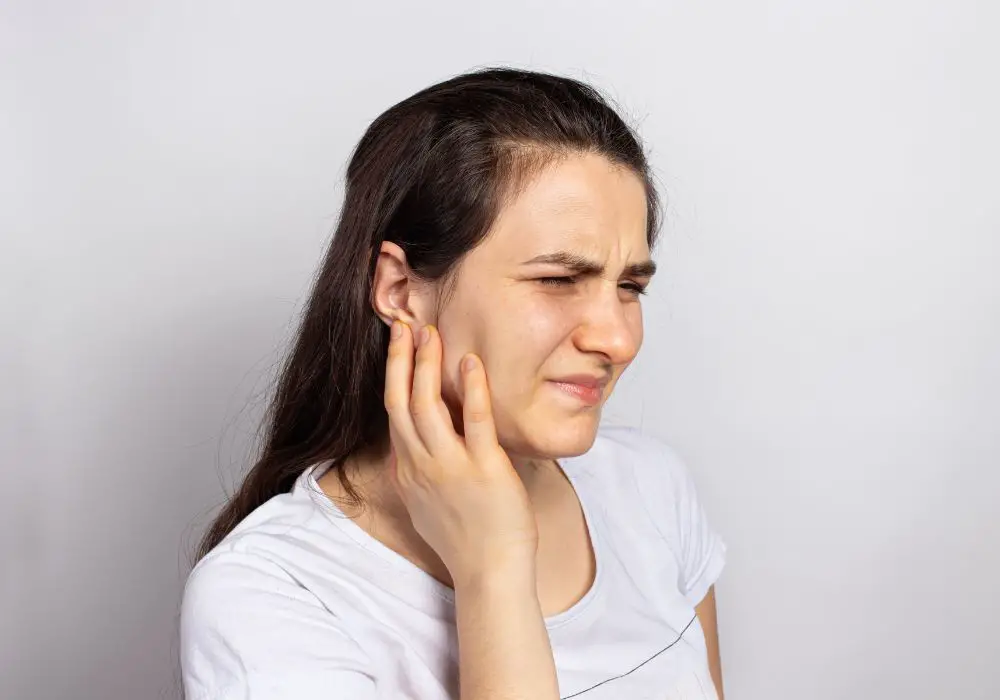
Annoying as they may be, TMJ sounds are usually not a worrisome sign on their own. But how can you know if your clicking requires medical intervention? Here are a few guidelines:
Most Clicking is Normal
Research shows that jaw noises are extremely prevalent, affecting an estimated 30 to 40 million Americans. Popping sounds occur in around 20% of the general population, while clicking happens in 40%. But only an estimated 4% of people with clicking joints have symptoms of a temporomandibular joint disorder. In other words, joint noises by themselves are poor predictors of jaw disease.
Look at Onset and Duration
Noises that begin suddenly and persist or get progressively worse deserve more scrutiny. Intermittent, short-lived clicking is typically harmless. If you only notice it once in a while when chewing something hard, it likely doesn’t signify deeper joint problems. However, it’s wise to get persistent, worsening clicking evaluated.
Consider Other Symptoms
With true temporomandibular joint dysfunction (TMD), people typically experience other symptoms beyond just clicking, such as:
- Jaw, ear, or tooth pain
- Headaches or migraines
- Locked or limited jaw movement
- A misaligned bite
- Swelling around the jaw joint
- Grating, crunching, or rubbing noises
So isolated clicking without painful or disabling symptoms is not generally a concern. Make an appointment with your dentist or doctor if you have persistent jaw pain, difficulty chewing, or other negative effects along with joint noise.
Why Does the Jaw Joint Make Noise?
To understand why your jaw suddenly starts clicking, it helps to look closer at the most common sources inside the joint:
Displaced Disc
Each TMJ has a rubbery disc between the jawbone and skull. This disc can slip partially out of position or move back into place as you open and close your mouth, causing a clicking sensation. Doctors refer to internal derangement of the TMJ when this disc displacement occurs. The term sounds ominous but is usually painless and benign.
However, disc displacement becomes problematic if the bones start rubbing directly against each other. This leads to wear and tear, inflammation, and pain. It can also cause locking if the disc completely displaces and gets stuck.
Arthritis Development
Like all joints, the TMJ is at risk for osteoarthritis over time. This inflammatory condition causes thinning of the cartilage so the bones do not glide as smoothly. Irregular bone surfaces grinding together leads to crepitus and crunching sounds. Joint space narrowing seen on X-rays often accompanies TMJ osteoarthritis.
Rheumatoid arthritis is less common in the jaw but also causes damage that leads to painful clicking and stiffness. Poorly controlled diabetes or teeth grinding are risk factors for unnatural TMJ arthritis.
Ligament Laxity
Some people have overly flexible joints and connective tissues. This excessive elasticity allows for clicking and popping as the jaw shifts beyond its normal range during opening and closing. It produces suction of air into the joint space that releases audibly. This benign joint hypermobility tends to start at a younger age.
Muscle Spasms
The four muscles responsible for chewing must contract and relax in a coordinated way to produce smooth jaw movements. Involuntary muscle tightening or spasming alters this timing and rhythm, which leads to clicking and other joint noises. Clenching, grinding, chewing gum, or resting your chin on your hand can trigger muscle tension.
How is Clicking Jaw Joint Treated?
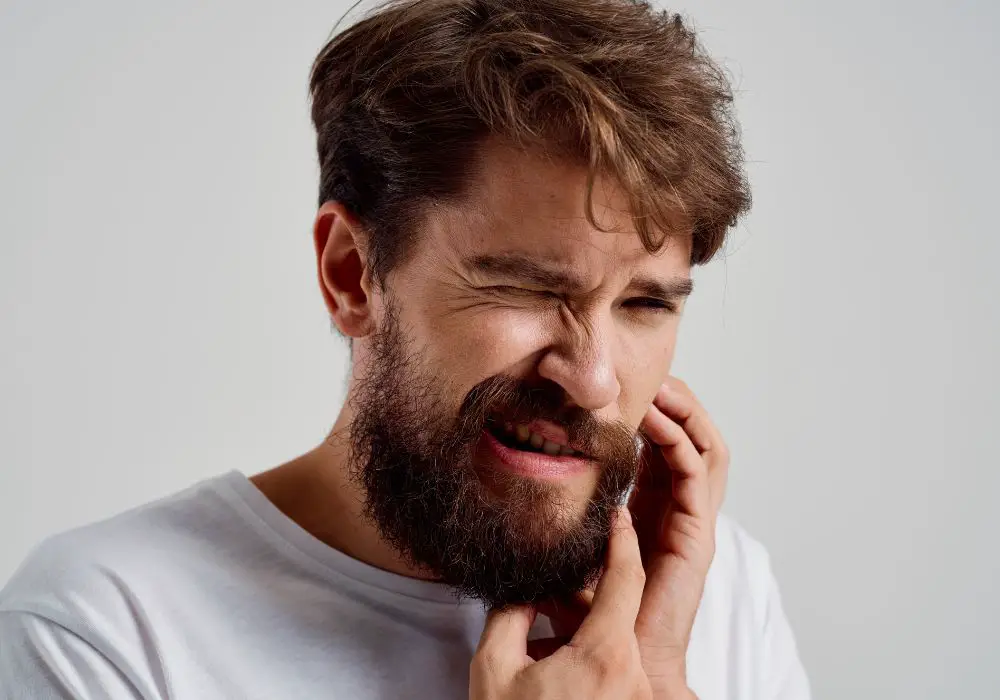
For most people, simple jaw clicking does not require any specific treatment. But if it coincides with persistent pain, swelling or limited motion, several conservative approaches are available:
- Over-the-counter pain relievers like acetaminophen or anti-inflammatory medication such as ibuprofen. This reduces inflammation in or around the joint.
- Low-impact jaw exercises and stretches prescribed by a physical therapist can strengthen the joint and relax tight muscles.
- A night guard provided by your dentist cushions teeth from grinding and clenching that strains the TMJ.
- Needle-less acupuncture treatments may provide TMJ pain relief for some patients.
- Counseling or self-care to manage bruxism, teeth grinding, stress, and other habits linked to joint disorders.
- Ultrasound, hot/cold therapy, massage, and splinting the jaw temporarily are other conservative treatment techniques.
If conservative efforts fail and arthritis or disc displacement causes ongoing pain and disability, surgery may be warranted. This ranges from arthroscopic lavage to remove built up adhesions to replacement of the joint with an implant in severe cases. But surgery carries risks, extended recovery time, and inconsistent outcomes.
Warning Signs to Seek Medical Care
TMJ clicking is so common that it understandably stirs anxiety about the cause and long-term consequences. Look for any of these red flags to determine when to consult a professional:
- Sudden onset – Clicking that comes on abruptly or begins loudly warrants evaluation to identify the cause. Gradual, intermittent clicking is more typical.
- Persistent pain – Click-related discomfort that occurs daily or lingers after the clicking goes away could mean underlying joint damage.
- Difficulty chewing – If clicking is accompanied by trouble opening your mouth fully or chewing certain foods, the joint mechanics may be impaired.
- Locked jaw – Any instance where your jaw gets stuck open or closed rather than just clicking indicates a displaced disc that needs treatment.
- Swelling or tenderness – Significant pain with jaw movement or swelling around the joint suggests trauma, arthritis, or another disorder.
- Additional symptoms – Headaches, migraines, dizziness, ear fullness, or tooth pain along with clicking may signal TMJ dysfunction.
- Bite changes – If clicking coincides with a sudden change in your bite alignment, that is a concern. See your dentist promptly.
What Causes That Popping Noise if not Clicking?
Clicks and pops have slightly different origins in the jaw joint. A click typically results from the disc slipping out of and back into position. Popping corresponds to the release of pressure built up within the synovial fluid or joint capsule.
Popping sounds have been linked to:
- Sudden movements like wide opening of the jaw when taking a big bite. This creates negative pressure that pulls tissues outward until releasing with a pop.
- Forcefully compressing a tight joint. This pressurizes joint fluid and gases until the pressure is released as a pop.
- Formation of gas bubbles in the synovial fluid due to underlying inflammatory arthritis. These eventually burst with a popping sensation.
Some popping upon waking up or yawning is normal as the fluid and tissues decompress. But loud, frequent popping warrants an exam to assess for joint damage or arthritis.
Steps to Reduce Your Risk of Developing Clicking Jaw

Not all cases of clicking jaw can be prevented. But you may lower your risk by:
- Avoiding jaw overextension – Limit wide opening when yawning or at the dentist. Open your mouth just enough to accommodate food without excessive stretching.
- Practicing jaw-relaxing exercises – Try gently stretching your jaw muscles and massaging the joint area to keep surrounding tissues loose.
- Improving posture – Slouching misaligns your bite and strains the jaw joint. Keep your head positioned over your shoulders.
- Quitting gum chewing – Constant chewing fatigues jaw muscles and may contribute to TMJ disorders.
- Eating soft, easy-to-chew foods – This reduces overworking the joint when already dealing with pain or clicking.
- Using hot/cold compresses – Alternating this can alleviate muscle tightness and pain.
- De-stressing and coping with bruxism – Manage life stresses and teeth grinding/clenching habits that lead to jaw tension and damage.
- Quitting tobacco – Smoking has been associated with accelerated TMJ arthritis.
When to Worry About That Clicking Sound
Occasional clicking without discomfort is not alarming. But seek medical advice if your jaw clicking is accompanied by:
- Frequent headaches or migraines
- Jaw, neck or ear pain that persists
- Swelling around the jaw joint
- Locked or limited range of motion
- A misaligned bite
- Tooth sensitivity not otherwise explained
- Grating, grinding, crunching sounds
- Difficulty opening your mouth to speak or chew
Promptly treating any TMJ damage and inflammation that underlies more troublesome clicking can help prevent permanent joint disability. With proper care, your jaw can keep comfortably clicking along into the future.
What to Remember About Your Clicking Jaw
- Clicking and popping result from irregularities between joint surfaces like disc displacement or arthritis. In most cases they are not harmful.
- Tell your doctor if clicking is accompanied by pain, locked jaw, chewing issues, or bite changes.
- Displaced discs, tense muscles, bone arthritis, and hypermobility cause most clicks.
- Seek treatment for clicking that begins suddenly, persists, gets louder, or limits jaw function.
- Surgery is a last resort and only considered for severe, untreatable pain and disability.
- Reduce your risk by avoiding overextending your jaw and managing bruxism.
Frequently Asked Questions About Clicking Jaw Joints
Why does my jaw click sometimes but not always?
Inconsistent clicking is often due to a disc that moves in and out of proper alignment. Clicking only occurs when the disc is displaced. The click results from the disc slipping back into position as your jaw closes. Other times, it remains normally aligned and no noise occurs.
Is a popping jaw worse than clicking?
Clicking indicates the disc moves in and out of position. Popping can mean the disc is completely displaced and gets pressed back into place forcefully enough to release gases that make a popping noise. Frequent popping may warrant medical treatment.
Can jaw clicking eventually lead to locking?
In some cases, yes. If disc displacement causes ongoing damage to the joint, it can progress to the disc getting stuck in the out-of-place position. This prevents smooth joint movement and leads to locking with the mouth only partially open.
Does jaw clicking mean I have TMJ disorder?
Not necessarily. Many people have clicking that comes and goes with no other bothersome symptoms. Around 33% of people with clicking joints have no identifiable jaw disorder. However, frequent clicking and popping can be part of TMJ dysfunction.
Should I avoid hard or chewy foods that make my jaw click?
Unless your doctor recommends it, you do not need to follow a special diet to prevent clicking. As long as you are not experiencing pain or difficulty chewing and swallowing, you can eat most foods. Avoid extreme jaw opening, but gentle joint movement is not harmful.
Can cracking my jaw like knuckles cause damage?
No, gently cracking your jaw is not known to cause harm. The noise results from bubbles releasing in the synovial fluid, which does not indicate injury. However, take care not to forcefully snap or twist the joint, which can potentially damage tissues and lead to pain.
Why does my jaw click when I open but not closing?
This one-sided clicking when opening often indicates the articular disc is displaced anteriorly (forward) when the jaw opens. As it slides back into place when closing, it does not create the clicking sound. Uneven clicking suggests a localized issue within the joint.
Should I avoid resting my chin on my hand if it causes clicking?
Yes, it’s smart to break this habit if it contributes to your jaw clicking or discomfort. Leaning your chin on your palm puts sustained pressure on the TMJ, which can strain muscles and ligaments, compressing the joint space. This leads to inflammation that may produce noises.
What’s the best way to manage teeth grinding linked to jaw clicking?
See your dentist about getting a custom night guard to wear while sleeping. This protects your teeth from damage and by relaxing your jaw muscles overnight can help reduce clicking related to bruxism. Stress management and avoiding stimulants like caffeine before bedtime may also help reduce teeth grinding.
Will clicks and pops ever go away on their own?
They may if the cause relates to temporary inflammation or muscle tightness. Clicking due to displaced discs, gum chewing, or structural changes like arthritis usually persist unless treated. However, the frequency and intensity may fluctuate over time. Let your dentist or doctor guide treatment based on your specific symptoms.

